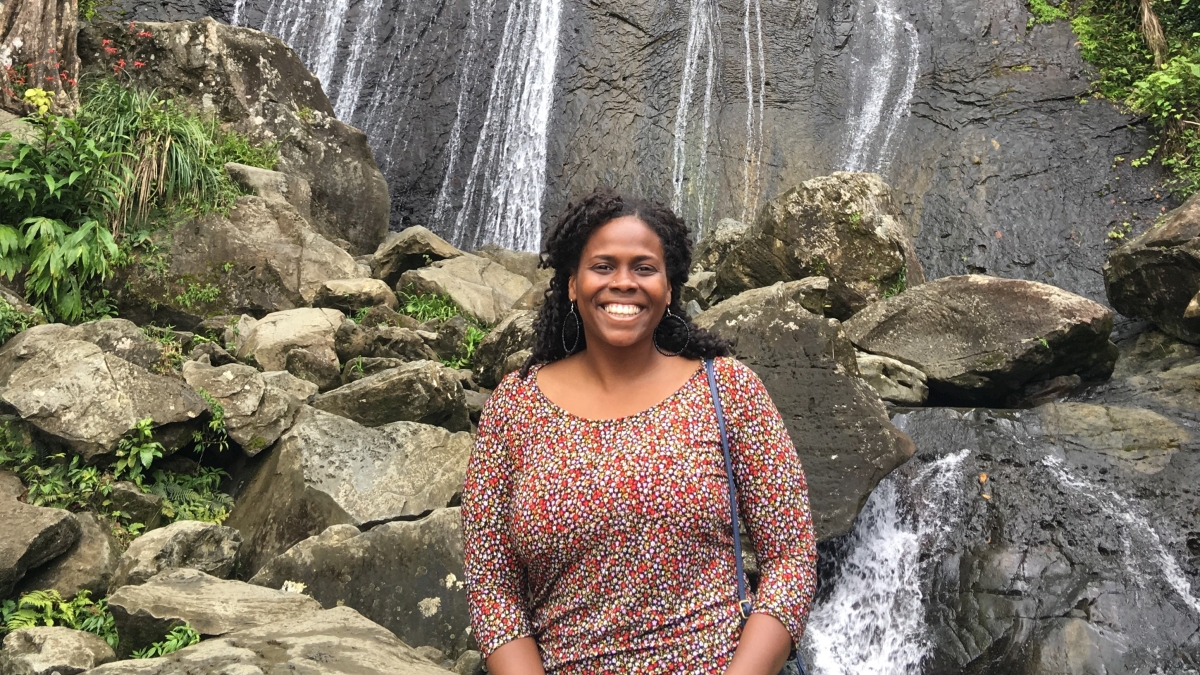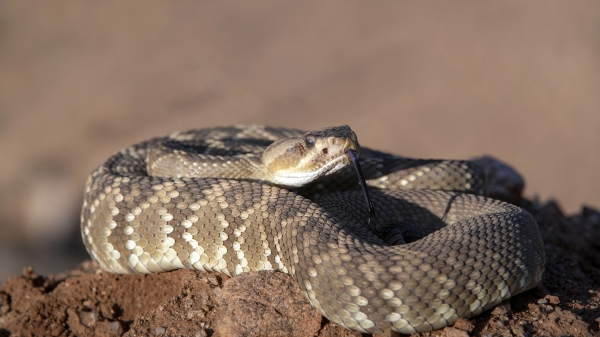PhD grad shares how impact of hurricanes led her to ASU and her plans to support US-Mexico border communities

Anaís Delilah Roque left Puerto Rico following hurricanes Irma and Maria to pursue her doctoral degree at ASU. This spring, she graduates from The College of Liberal Arts and Sciences with her PhD in environmental social science.
Editor's note: This story is part of a series of profiles of notable spring 2021 graduates.
In the fall of 2017, Anaís Delilah Roque was working as a shelter administrator in Puerto Rico and in her first semester of a master’s degree in urban planning. Then, within two weeks of each other, hurricanes Irma and Maria struck the island, causing widespread destruction, power outages and nearly 3,000 deaths.
The event was life-changing for Roque in many ways. Soon after the effects of the storm were known, universities across the U.S. – including Arizona State University – extended offers to students at the University of Puerto Rico to apply and continue their studies.
“After seeing the disaster and the lack of justice and recovery, even in the response efforts that I was a part of … I decided to come to ASU to pursue a program that allowed me to really understand how communities respond to disasters,” Roque said.
The hurricanes hit Puerto Rico in September 2017, and by January 2018, Roque was in Arizona pursuing a doctoral degree. She said it was a short window of time to make a decision, and although everyone had different experiences following the hurricanes, she knew leaving her home to pursue a PhD at ASU was her best opportunity for future success.
“I wanted to be able to support my family; pursuing graduate studies and coming to ASU was the best opportunity because it came with a fellowship that was sufficient for me to cover tuition and to also help my family back there,” she said.
In coming to ASU, she also changed the focus of her research.
“I've always been drawn to social science research. I have a bachelor's degree in political science, and I'm very active in my community in terms of community development, which is why I had decided to pursue urban planning. But the hurricanes changed my whole idea of what I was going to study,” she said. “I had experience doing a lot of environmental-related topics, and I had worked in and was interested in topics of food and informal economies, but not disasters. So it was definitely an impact that pivoted my research.”
This spring, Roque is graduating from The College of Liberal Arts and Sciences with her PhD in environmental social science. She shared more about her experiences at ASU and what she has planned next.
Question: Your move to ASU happened so quickly; how did you adjust to the change while processing the effects of the hurricanes?
Answer: It was definitely very shocking to see the level of destruction. I'm a person very connected to my community wherever I'm at, and at that time, it was with my fellow Puerto Ricans. It was so hard; I had depression when I came to Arizona, mainly because I saw electricity, water, food and so many resources. And ASU is so beautiful, aesthetically speaking, I had a flashback of like, “Oh, I'm here in the United States, pursuing a graduate program when there's all these people that are suffering that I left behind.” So those first months were very hard, I almost dropped from ASU. I'm very grateful to the faculty who helped me. I sought mental health resources very quickly. I think that was crucial to get that support, but what fueled me to stay is the idea — that me and I know this is the same for the other students that are here — that our research was going to go back to help Puerto Rico.
Q: Can you share more about your research?
A: My dissertation work is on community resilience, so the ability of communities to absorb the shocks of a phenomenon — in this case a disaster — and then bounce forward, discovering ways that can make them stronger for future events. The second part of my dissertation is on water-insecurity responses. Here I focused on water-sharing practices among households and the brother communities in western Puerto Rico. How do people use their networks when the government fails them? How did they use their social networks, their connections with their families and friends, neighbors and so forth to be able to cope with that and provide safe and reliable drinking water? I was fueled by the idea of collecting this knowledge, then using the resources of the university to be that bridge between the university knowledge and the community needs for future preparedness.
Q: What’s something you learned while at The College — in the classroom or otherwise — that surprised you or changed your perspective?
A: I think the opportunity that ASU brings to connect across disciplines — the New American model — is very interesting. You have a social scientist with a political scientist and an engineer working to understand issues of energy or issues of food, and I think that was something very eye-opening for me. At my previous institution, these types of interdisciplinary, transdisciplinary approaches weren’t a big thing.
Q: Did you receive any scholarships or financial support while at ASU? If yes, how did those impact your experience?
A: The fellowship that I got gave me the opportunity to be a research assistant for three years. That gave me the opportunity to pursue my research, but it was also the combination of having great advisers that allowed me to combine research interests and advance my PhD agenda. I also applied to different, smaller grants within my unit, and that was also helpful for me to continue my broader understanding, like when I went to Hong Kong for study abroad with the School of Sustainability. That was another eye-opening opportunity to see how sustainability challenges are being addressed in other parts of the world.
Q: What does it mean to be the first in your family to receive a PhD?
A: I come from a low-income/resource family, and my grandmother moved from Puerto Rico to the United States in the ’50s and worked at a university. Long story short, she helped advance research, even though she did not have any type of like degree. So in our household, as women, as Black women, it has always been very important to achieve higher education. Not only for our development, but also so that we can be independent from men or independent to pursue our own endeavors. ... Education is the key for success, and now not only do I have this degree, but I have access to all this knowledge that I can share with my nieces and generations to come. Not everybody has to have a PhD, but by having one, now I have access to new opportunities and that can uplift both my community and my own family moving forward. I think that's very beautiful; we never even thought that that was going to happen because of the lack of opportunities in the past.
Q: Which professor taught you the most important lesson while at ASU?
A: There are a couple. My primary adviser Dr. Amber Wutich has always said to trust the process. I'm a person that cannot trust the process; I have to have control of everything. So I think that's been a powerful lesson. I also took so many really good courses, like solving sustainability problems with Dr. Arnim Wiek and disasters as a window of opportunity for sustainability with Dr. Katja Brundiers. I cannot choose one, there's a combination of moments. … I think I was very blessed that I had those people and that I still have them; now I consider them colleagues or even family.
Q: What are your plans after graduation?
A: I’m staying at ASU and am going to be working as a postdoctoral scholar, through a National Science Foundation convergence grant that focuses on water equity and colonia communities in the U.S.-Mexico border. Colonias are basically unincorporated communities that are near the border, and they lack essential services such as water. So I'm going to be working on community-based participatory research and also try to bridge policymakers, academics and the communities to really understand their needs and how we can support those needs.
More Environment and sustainability

ASU launches groundbreaking partnership to address water insecurity in Arizona
For the past two years, Arizona has contended with record-breaking heat and over 1,000 heat-related deaths in Maricopa…

There's a rattlesnake in your backyard: What do you do?
A snake slithers onto your back porch one sunny morning.What do you do?Call a relocation expert, grab a shovel and try to kill…

Pettinger to guide Southwest Sustainability Innovation Engine's sustainable technologies to market
There’s a lot of daylight between coming up with a good idea and turning that idea into something people can use.Katie Pettinger…